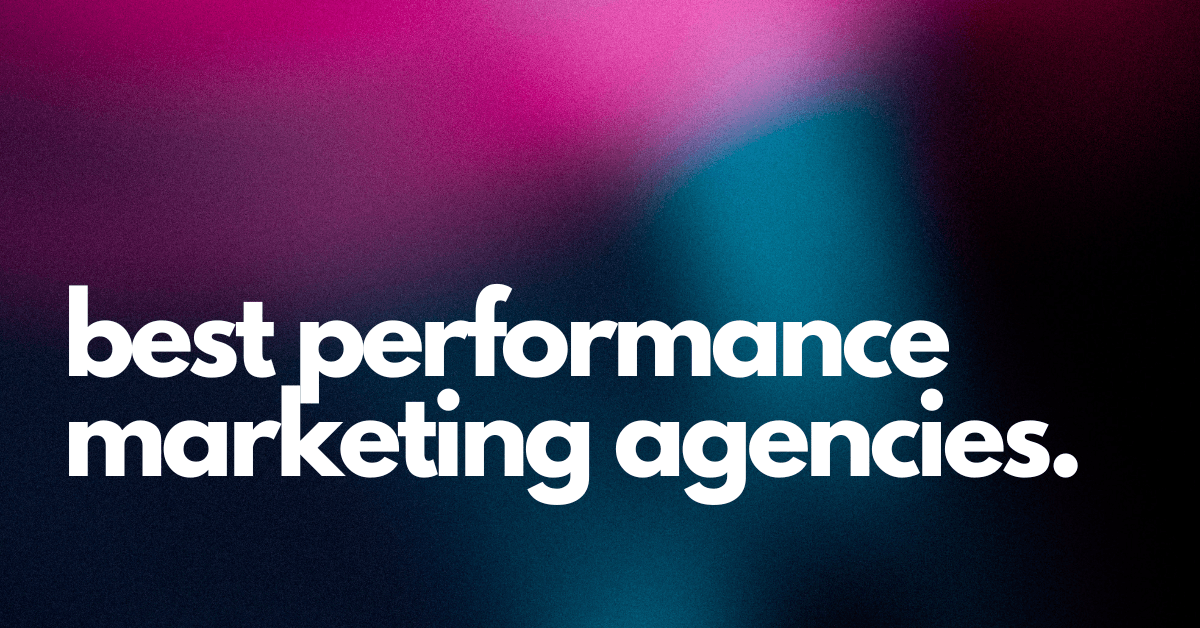Many companies reach a point where they need to decide: in-house marketing vs agency?
This decision has a long-term impact on budget, results, and overall growth.
In this article, we’ll break down the pros and cons of in-house marketing vs agency partnerships. We’ll also share insights from the mobile app and game marketing space – our specialty at Udonis – to help you make the smartest call for your business.
What Is In-House Marketing?
First, let’s define what does it mean to do marketing in-house.
Definition and Structure
In-house marketing means building your own internal team to handle all marketing activities. Instead of outsourcing to an external partner, you hire full-time employees who work exclusively for your company.
A typical in-house team might include a marketing manager, a content writer, a designer, a social media specialist, and possibly a paid media manager.
Larger teams may also include SEO experts, user acquisition specialists, and data analysts.
These team members collaborate closely with your product, sales, and leadership teams. Everyone is under the same roof (or Zoom link), working toward the same company goals.
Because they’re fully embedded in your business, in-house marketers often have a deeper understanding of your product, your audience, and your brand voice. That’s a big plus for companies that want full control over how they communicate and grow.
That said, building an internal team isn’t always the best choice – especially if you’re trying to scale fast, test new channels, or need access to specialized skills. That’s where agencies come in.
What Does a Marketing Agency Do?
If you’re comparing in-house marketing vs agency options, it’s important to understand how agencies work – and what they can bring to the table.
Agencies are often brought in when companies need to grow faster, tap into specialized knowledge, or execute campaigns that require more resources than their internal team can handle.
Definition and Setup
A marketing agency is an external team that works with companies to help them plan, execute, and improve their marketing efforts. You don’t hire them as employees – they’re a partner you bring in to handle specific parts (or all) of your marketing.
Depending on the agreement, agencies might run your paid ads, build landing pages, produce creatives, or manage your user acquisition campaigns.
Some agencies work on a monthly retainer, while others charge by project or performance. They usually come with their own systems, tools, and experts already in place – so you can plug them in without having to build everything from scratch.
You can think of an agency as an extension of your team, but one that brings a lot more experience and cross-industry insight to the table.
Types of Agencies
Not all agencies are the same. Here’s a quick breakdown:
- Generalist agencies handle everything from branding and PR to performance marketing. They’re a good fit if you want one team for everything, but they may not go very deep in any one area.
- Performance-focused agencies specialize in driving measurable results – like installs, purchases, or leads. These are best for companies that care about ROI and growth.
- Niche agencies focus on a specific market or channel. For example, at Udonis, we focus on mobile app and game marketing. We help developers and app companies scale user acquisition, produce winning ad creatives, and grow faster across platforms like Meta, TikTok, and Unity.
Choosing the right type of agency depends on your goals. If you’re in a space like mobile gaming or apps – where UA, creatives, and testing are everything, a specialist agency will almost always deliver better results than trying to do it all in-house.
Explore top agencies:
Pros and Cons of In-House Marketing
When weighing in-house marketing vs agency partnerships, it helps to look at the strengths and weaknesses of having your own internal team.
Here’s a breakdown of the main advantages and drawbacks to help you decide what fits your goals and resources.
Pros
Full control over strategy and brand
With an in-house team, you’re in charge of everything – from high-level strategy to the tone of a single Instagram caption. This kind of control is valuable if your brand voice is a big part of your identity. You can quickly tweak messaging, test ideas, or shift priorities without needing outside approval.
Closer collaboration with product teams
Being in the same org (or Slack workspace) means your marketing team stays tightly aligned with your product and dev teams.
That makes it easier to coordinate launches, give product feedback, and keep messaging on point. Especially for SaaS, apps, or games, this kind of real-time collaboration helps keep marketing synced with the product roadmap.
Long-term team investment
In-house marketers live and breathe your product every day.
Over time, they build deep knowledge of your audience, your positioning, and what’s worked (and hasn’t).
That consistency can be a big plus if you’re playing the long game and want a team that grows with your brand.
Cons
Expensive to hire and retain top talent
Good marketers aren’t cheap – especially if you need specialists like paid media buyers, UA managers, or creative strategists.
Beyond salaries, you’ll also be covering benefits, taxes, software tools, and ongoing training. For many companies, that adds up fast.
Limited expertise across all channels
Even a strong in-house team will have skill gaps. Maybe your content team is great, but nobody’s running TikTok ads and knows the right ad specs. Or your designer can make static banners but not video creatives.
Covering every important channel usually means hiring more people – or accepting some blind spots.
Slower to scale or react to market shifts
If you’re launching something new or need to pivot fast, in-house teams can hit bandwidth limits. You may need to wait for new hires, shift people off other work, or outsource short-term projects anyway. Agencies tend to be more plug-and-play when speed matters.

Pros and Cons of Working With a Marketing Agency
If you’re comparing in-house marketing vs agency support, it’s not just about outsourcing tasks.
A good agency can become a growth partner.
Here’s a clear look at the upsides and trade-offs of working with an external team.
Pros
Access to specialists and creative teams
Agencies are built to bring together experts: paid media buyers, creative strategists, UA managers, copywriters, designers, analysts – you name it. Instead of hiring each one, you get access to a full team right away.
This is especially helpful in fast-moving industries like mobile apps and games, where performance marketing demands multiple skill sets working together.
Scalable resources without the overhead
One of the biggest benefits of an agency is flexibility.
You can scale up during a big launch, scale down during a slower season, or shift priorities without going through a hiring (or firing) process. It’s like adding capacity without increasing your headcount.
Up-to-date channel expertise
Agencies work across many clients and campaigns, which means they usually spot platform updates, creative trends, or strategy shifts early. Whether it’s a Meta algorithm change or a new ad format on TikTok, your agency team is already testing and adapting – so you benefit from what’s working now, not last year.
Faster execution and testing
Good agencies move fast.
They have systems in place for launching campaigns, running A/B tests, producing creatives, and optimizing performance. If your internal team is bogged down in meetings or approvals, an agency can help get ideas into market quickly and start generating results.
Cons
May require onboarding time
Agencies aren’t part of your day-to-day, so they’ll need time to understand your product, audience, and goals. The better agencies have onboarding processes that speed this up, but expect some ramp-up before they’re fully firing.
Less embedded with product teams
Since agencies aren’t sitting in your office (or on your team calls), they might miss out on internal context, like roadmap changes or shifting priorities.
That’s why communication is key: sharing updates, clear briefs, and goals helps keep everything aligned.
Potential for misalignment
Not every agency relationship clicks.
Sometimes the style, pace, or expectations don’t match up. That’s why it’s important to choose an agency that’s transparent, performance-driven, and easy to collaborate with – so you stay on the same page as partners, not just vendor/client.
Cost Comparison: In-House Team vs. Agency Fees
When you’re deciding between in-house marketing vs agency support, cost is usually one of the first things that comes up.
But it’s not always a straightforward comparison.
Salaries and retainers are just the beginning – there’s a lot more under the surface.
In-House Marketing Costs
Building an in-house team means covering everything: salaries, benefits, onboarding, training, and tools.
Here’s what that might look like:
- Paid Media Manager: $80K–$120K/year
- Creative Strategist: $70K–$100K/year
- Copywriter or Designer: $60K–$90K/year
- Marketing Manager: $90K–$130K/year
- Software Tools & Subscriptions: $1K–$5K/month
- Hiring & Retention Costs: Add even more
If you want full channel coverage – UA, creatives, analytics, and strategy – you’ll likely need 4–6 people minimum. That puts you well into the $400K–$600K/year range before even factoring in time to hire, onboard, and ramp everyone up.
Marketing Agency Fees
Agencies charge in a few different ways:
- Monthly retainer (flat fee): Typically $5K–$30K/month, depending on scope
- Performance-based: A % of ad spend or a fee tied to results
- Project-based: One-off campaigns, creative builds, audits, etc.
At first glance, agency fees might seem high, but they usually cover a full team, including media buyers, designers, analysts, and project managers. You’re not just paying for one person – you’re getting access to a full set of skills, often at a lower combined cost than building that team yourself.
Plus, there’s no downtime. You don’t have to wait months to recruit, and you’re not stuck paying full-time salaries during slow periods.
Bottom Line
If your marketing needs are basic and stable, building in-house could make sense long-term.
But if you’re trying to grow fast, test channels, or tap into specialized skills without breaking the bank, an agency often delivers more value per dollar, especially when it comes to results.
When to Choose In-House Marketing
There are a few situations where building an internal marketing team makes the most sense, especially if you’re focused on brand control or already have a solid foundation in place.
You have a long-term marketing roadmap
If your marketing goals are stable and don’t involve constant changes in channel mix or campaign structure, an internal team can bring consistency. This is common for companies focusing on SEO, content, or organic brand-building.
Brand voice and product alignment are top priorities
For businesses where every piece of messaging needs to be closely reviewed, like in regulated industries or niche B2B markets, in-house marketers can ensure everything stays on brand and legally compliant.
When Hiring a Marketing Agency Makes More Sense
For most companies, especially those trying to grow quickly or compete in a performance-driven market, working with an agency unlocks speed, flexibility, and deeper expertise.
You need to launch or scale quickly
Whether you’re launching a mobile game, testing paid campaigns, or pushing into new markets, agencies can ramp up immediately.
You don’t have to wait for hiring cycles or onboarding – everything is ready to go.
You need access to specialized skills
User acquisition. Creative testing. Multi-channel attribution. Paid social. These are tough to cover in-house unless you have a big team. Agencies already have these people in place, and they’ve seen what works across many verticals.
You want to optimize ad creative and performance
In channels like Meta and TikTok, creative is often the biggest growth lever.
Agencies like Udonis build and test high-performing ad creatives at scale – something most in-house teams don’t have the time or tools to do effectively.
You’re looking for better results, not just more work
Instead of managing a team or worrying about headcount, you want a partner that just gets it done.
Good agencies bring structure, reporting, and constant iteration so you’re not stuck managing the process.
You need flexibility with budgets and scope
Want to pause spending for a month? Test a new market? Shift strategy mid-campaign? Agencies can do that without HR processes, layoffs, or hiring delays.
Hybrid Models: Best of Both Worlds?
For some companies, it’s not a matter of choosing between in-house marketing vs agency support – it’s about combining both.
A hybrid model lets you keep certain functions internal while outsourcing others.
For example, your in-house team might handle brand messaging and organic social, while an agency manages user acquisition, paid media, or ad creative production.
This setup works especially well when:
- You already have a small team but need extra support in areas like performance marketing or creative testing
- You want to scale campaigns without overloading your internal staff
- You’re in a fast-moving industry (like mobile apps or games) where testing speed, creative production, and channel-specific expertise make a big difference
Hybrid models give you the flexibility to get the best of both worlds – internal alignment with product, and external speed and scale from an agency.
Case Example: Mobile Game Growth with an Agency Partner
To see how agency support can make a real difference, let’s look at Playsome – a small, high-talent game studio based in Helsinki.
Playsome launched Friends & Dragons, a fantasy RPG puzzle game, with big goals and limited time. After securing seed funding, they gave themselves just six months to prove product-market fit. Daniel, who was handling everything from user acquisition to product and design, needed to move fast and couldn’t afford to build a full internal team.
That’s where our agency came in.
At first, Daniel was just looking for help with creatives.
But once we started working together, it became clear that we could take a lot more off his plate. We handled creative production and user acquisition, delivering new ad creatives that didn’t need rounds of feedback. The first batch went live within a week, and we were off to the races.
With strong retention metrics in place, Playsome hit their early goals and secured their next funding round.
Daniel summed it up best: “As a one-person marketing team, I love that we can run on autopilot with an expert agency who knows what they’re doing. It’s a dream come true.”
By working with us, Playsome stayed lean, moved quickly, and focused on improving live ops and monetization, without needing to build a massive internal marketing team.
For fast-moving mobile companies, that kind of flexibility can be a game-changer.
Final Thoughts on In-House Marketing vs Agency
Choosing between in-house marketing vs agency support isn’t always a black-and-white decision. It depends on where your company is right now, what your goals are, and how fast you need to move.
If you have the resources to build a large team and your marketing needs are steady and predictable, going in-house might make sense. But if you’re working with limited bandwidth, need specialized expertise, or want to grow faster without adding headcount, an agency can be the smarter choice.
The key is knowing what you want to achieve – and picking the setup that gets you there without slowing you down.
Thinking About Growing Your App or Game?
If you’re in the mobile space and thinking about scaling your user acquisition or creative production, we’d love to help.
At Udonis, we work with game studios and app developers to drive installs, improve retention, and create high-performing ad creatives – without adding extra pressure to your internal team.
No hard pitch – just smart strategy, fast execution, and real results.







Comments